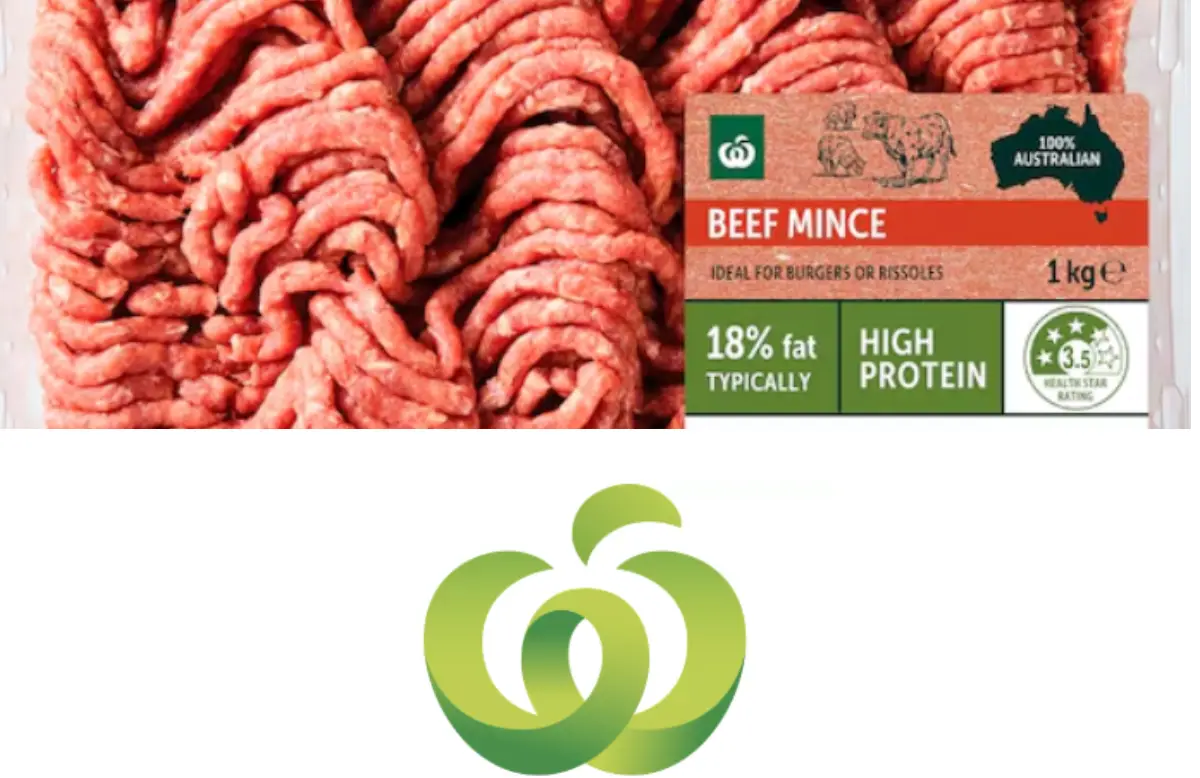Why was Woolworths' beef minced recalled? Reasons explained
-
 Woolworths beef recalls
Woolworths beef recallsWoolworths has found itself in a rare yet serious food-safety spotlight, as its 18% fat minced beef line—simply known as minced beef—was recalled. The reason behind their minced beef recall was simple yet unsettling: possible plastic contamination. In essence, bits of soft blue plastic that shouldn’t have been in your dinner made it into supermarket packs.
While shoppers were given unusual dinner delays and extra trips to the return counter, they've assured no one has fallen ill, yet the question on everyone’s mind has been answered by the recall itself, setting the stage for a deeper look at how this slipped through.
Why was Woolworths' minced beef recalled?
Woolworths recalled the minced beef after detecting potential plastic fragments in packs of its 500g and 1kg 18% fat minced beef, all with a best-before date of July 5, 2025. The issue was isolated to the North Island, affecting both Woolworths and Countdown stores.
This recall wasn’t about microbes, allergens, or undercooked ethics—it was material contamination. It looks like some soft blue plastic — probably bits from the packaging or machinery — ended up mixed in with the mince. As soon as Woolworths and Countdown found out, they pulled every affected pack off the shelves and asked shoppers to either return it for a full refund or just throw it away. Even though nobody has fallen sick, New Zealand Food Safety (part of the Ministry for Primary Industries) got involved.
Their deputy director-general, Vincent Arbuckle, reminded anyone who’s worried after eating the mince to check in with a doctor. Woolworths has said sorry, reassured everyone that the rest of their beef range is safe, and stressed how seriously they take food safety. More than just a simple stock issue, this incident shows how one small piece of plastic can shake customer trust and disrupt an entire supply chain.
Deeper look: Claims, concerns and legal angles
While the spotlight shines on those errant plastic fragments, Woolworths minced beef was already a well-known staple, praised for its balance of flavour and fat content. But with this recall, public statements and scrutiny poured in. The NZ branch released a formal notice, urging customers not to consume the affected mince and promising full refunds. The tone was calm but firm: they knew how seriously contaminated food is taken.
Health-wise, plastic ingestion (even soft blue fragments) can cause minor issues like irritations, or in worst cases, gastrointestinal distress. While plastic bits aren’t toxic, they’re certainly unwelcome in your meal. So far, no one’s claimed harm—but the warning remains loud and clear: check your packs, especially those with a July 5, 2025 best‑before.
Legalities? The company is in clean-up mode alongside NZFS, which will explore how contamination occurred and implement steps to prevent a repeat. The Food Act 2014 imposes fines up to NZ$500,000 for recollecting unsafe food. Woolworths must also comply with recall protocols—issue notices, contact retailers, dispose of products safely, handle consumer queries (they’ve set up a hotline at 0800 40 40 40).
Beyond legal frameworks, consumer trust is the bigger concern. Analysts point to this incident as part of a pattern—past recalls included plastic in pies and metal in other products, suggesting deeper supply-chain oversight issues. Brands like them rely heavily on consumer confidence, and even safe-by-janitorial standards hiccups can dent reputation.
In short, the minced beef in question was recalled because of possible plastic contamination—a serious but contained slip-up that triggered swift action. Woolworths and regulators responded decisively with refunds, warnings, and safety checks. Let it be a reminder: even a small fragment can crack confidence in a brand, but transparent recalls and proactive fixes can help rebuild that trust, one safe mince at a time.
TOPICS: Woolsworth